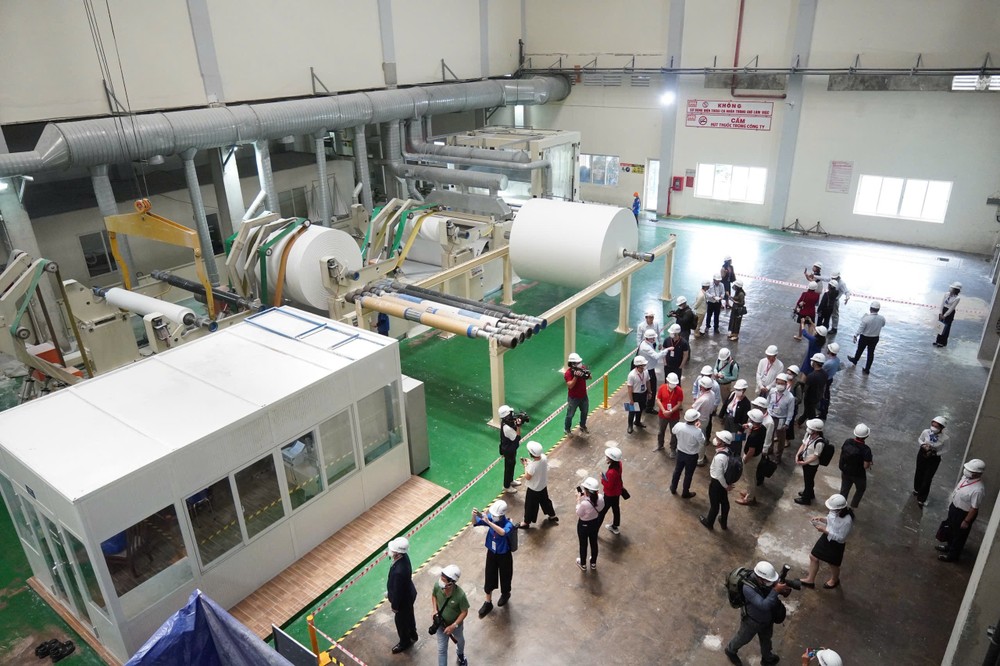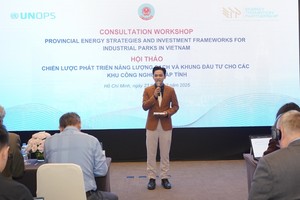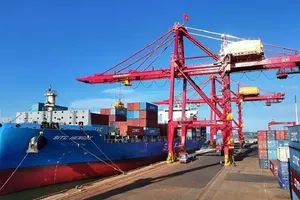Throughout the nation's development, the private economy has been continually reviewed and reassessed at each stage. With every new evaluation, its role has been further affirmed, accompanied by expanded conditions that enable greater contributions to national growth.

Private sector's contributions are growing
Entrepreneurs are very excited, said Chairman Le Tri Thong of the Ho Chi Minh City Young Entrepreneurs Association and General Director of Phu Nhuan Jewelry Company (PNJ). He added that confidence is increasing a lot now that the draft Project on Private Economic Development has been completed and the Politburo has issued Resolution No. 68-NQ/TW, which recognizes the private economy as the most important driving force of the economy.
Resolution No. 68-NQ/TW has significantly boosted confidence and expectations, marking a turning point in economic reform and generating new momentum for private sector development. Notably, this is the first time the private economy has been officially recognized as 'the most important driving force' of the economy—a milestone shift in both ideological and policy frameworks.
'This is a historic transformation, a clear ideological and political shift', remarked lawyer Nguyen Hong Chung, Vice Chairman and General Secretary of the Vietnam Industrial Zone Finance Association.
Resolution No. 68-NQ/TW has significantly boosted confidence and expectations, heralding a pivotal moment of substantial reform that is generating new momentum and impetus for the growth of the private economy. Notably, this resolution marks the first time the private economic sector has been officially designated as "the most important driving force" of the economy.
According to lawyer Nguyen Hong Chung, Resolution No. 68-NQ/TW is a historic transformation, representing a clear ideological and political shift.
After three decades in the private economic sector, providing guidance and support to businesses, he expressed his satisfaction in seeing the private economy recognized as the primary driving force. This perspective reflects the current vision, strategic insight, and practicality essential for the nation's economy. Each shift in perception regarding the private economy has so far led to significant transformations within the sector. Since the country embraced innovation in 1986, the private economy has been acknowledged as a vital component of the overall economy. The introduction of the Company Law and the Private Enterprise Law in 1990 marked a pivotal legal recognition of the private economic sector in the nation.
By 1999, the Law on Enterprises was born, creating a breakthrough in thinking, expanding business freedom, the business environment, creating an explosion of the private economy. In 2004, the Prime Minister declared October 13 as Vietnamese Entrepreneurs Day, significantly fostering and advancing the growth of the business community.
Another milestone is the Politburo's Resolution No. 09-NQ/TW dated December 9, 2011 on promoting the role of Vietnamese entrepreneurs. The next historical milestone was Resolution 10/NQ-TW on developing the private economy into an important driving force of the socialist-oriented market economy, the private economy is encouraged to develop in all fields that are not prohibited by law.
Resolution No. 68-NQ/TW marks a significant milestone by affirming that, within a socialist-oriented market economy, the private sector is the most important driving force of national economic growth.
The Resolution calls for the elimination of longstanding biases and the creation of an open, transparent, stable, and secure environment for private enterprise. It also candidly acknowledges the persistent challenges facing the private sector—particularly in accessing essential resources such as credit, land, natural assets, and skilled human capital.
Furthermore, the Resolution highlights regulatory and administrative hurdles, including the burden of navigating hundreds of conditional business sectors and thousands of specific business requirements. Informal costs remain a serious concern, imposing invisible pressures on businesses and discouraging investment.
Prime Minister Pham Minh Chinh has called for a 30 percent reduction in administrative procedures, aiming to lower costs and business requirements. However, when new regulations are introduced to revise existing ones, certain ministries and departments have still proposed amendments that add to the procedural burden, leading to increased costs for businesses. Lawyer Bui Van Thanh remarked that the private sector lacks complete freedom to operate under market mechanisms, and businesses do not feel secure in their ability to engage in any industry that is not explicitly prohibited by law.
Bottlenecks will soon be removed
According to former Director of the Central Institute for Economic Management (CIEM) Nguyen Dinh Cung a prosperous country cannot lack a strong domestic business force. He believes that when Resolution No. 68-NQ/TW is implemented substantially and effectively, the private economy will be the pioneering force to promote growth, create jobs, improve labor productivity, and national competitiveness. Along with the state economy and collective economy, the private economy plays a pivotal role in building an independent, autonomous, and self-reliant economy, helping the country escape the risk of falling behind and rise up to prosperous development. Currently, although there are national-scale enterprises, this number is only about 2.6 percent - 2.8 percent of the total number of enterprises nationwide.
The remaining 97 percent are small and medium-sized enterprises, of which micro-enterprises account for 69 percent.
It is concerning that there remains a reluctance to fully commit to significant initiatives, while another segment has exited the market. The current number of enterprises is still insufficient, and their distribution is notably sparse that there is only one enterprise for every 100 individuals, which is a markedly low ratio compared to other countries in the region.
Currently, there are only nearly 1 million enterprises in operation while private investment in recent years has also continuously slowed down.
CIEM former Director Nguyen Dinh Cung expressed strong optimism that the swift and effective implementation of Resolution No. 68-NQ/TW will help dismantle barriers, resolve longstanding bottlenecks, reignite entrepreneurial spirit, and stimulate investment—ultimately unlocking the full potential of the private sector and enabling its robust development.
The Resolution underscores the critical role of the private economy, which comprises nearly 1 million enterprises and approximately 5.5 million household businesses. This sector contributes around 50 percent of the country’s GDP, generates over 30 percent of total state budget revenue, and provides employment for 82 percent of the national workforce.
























